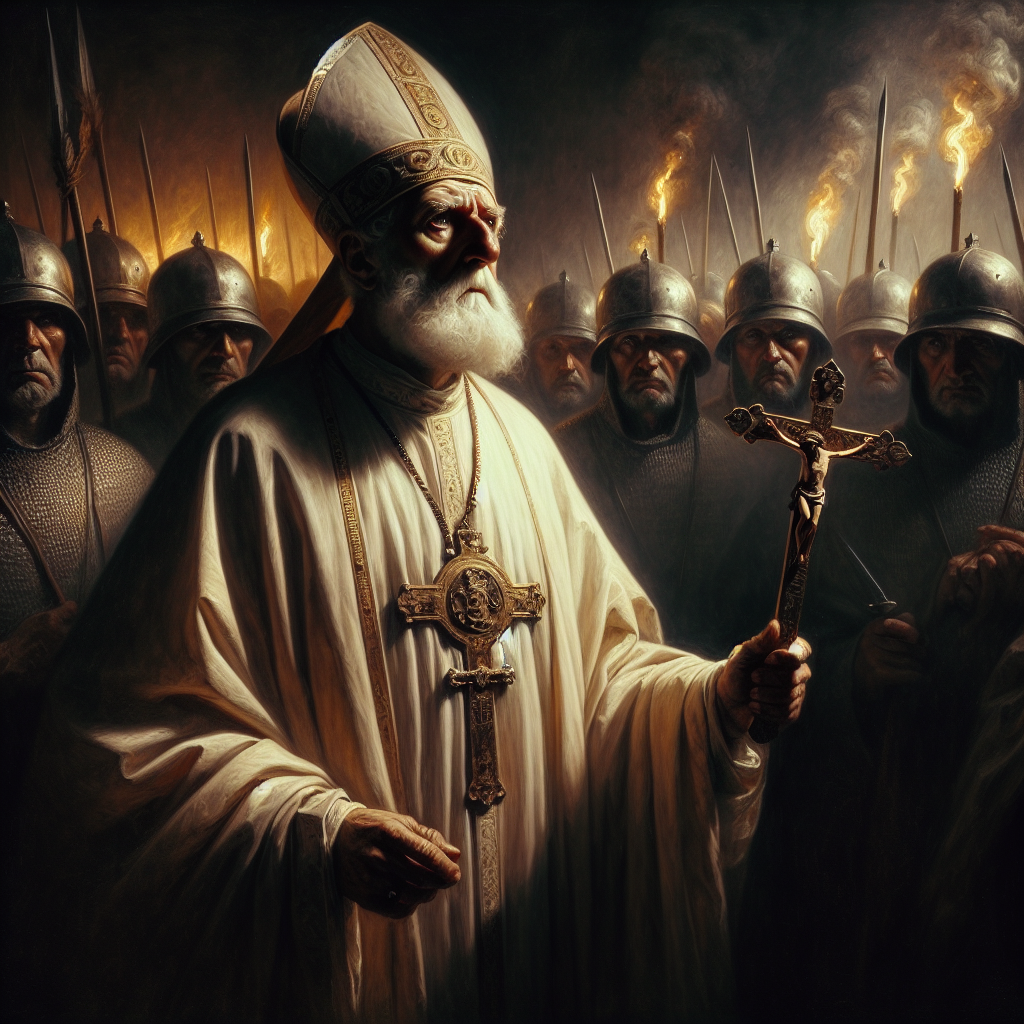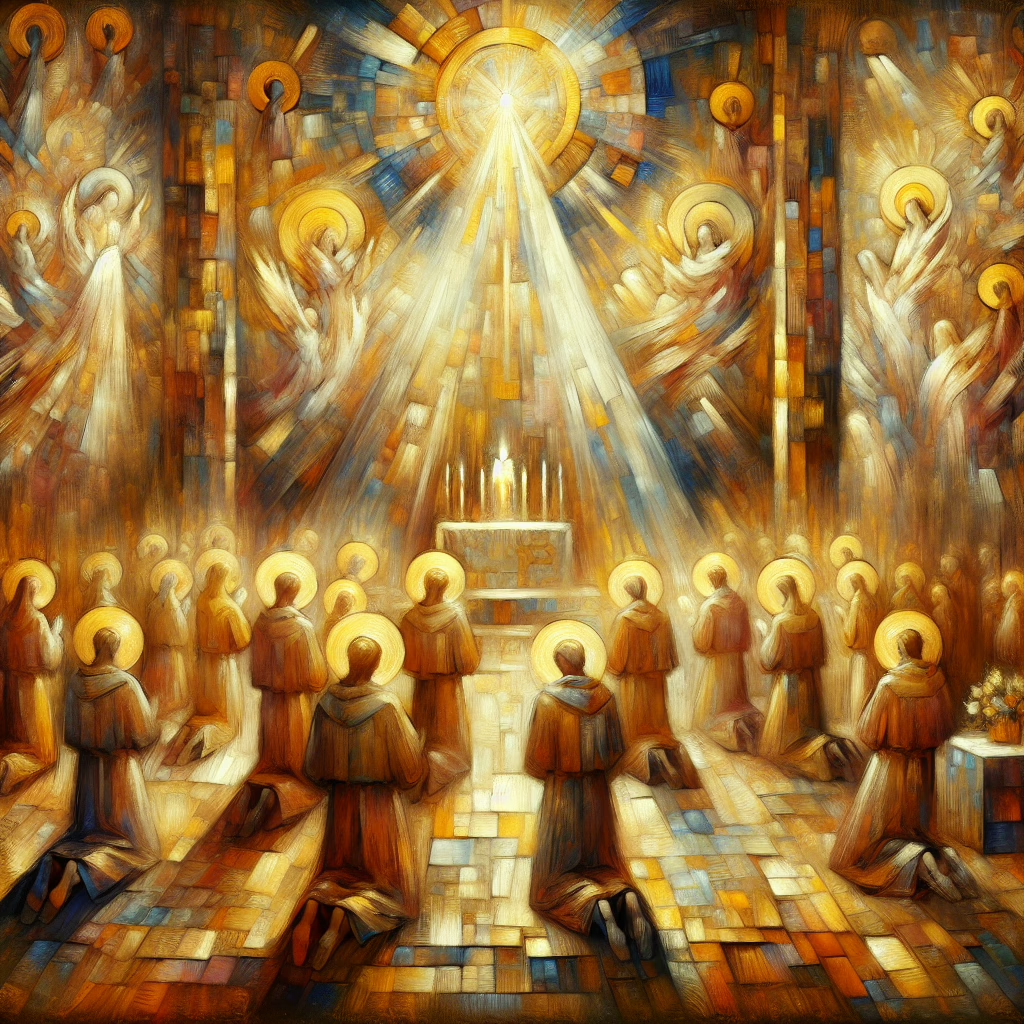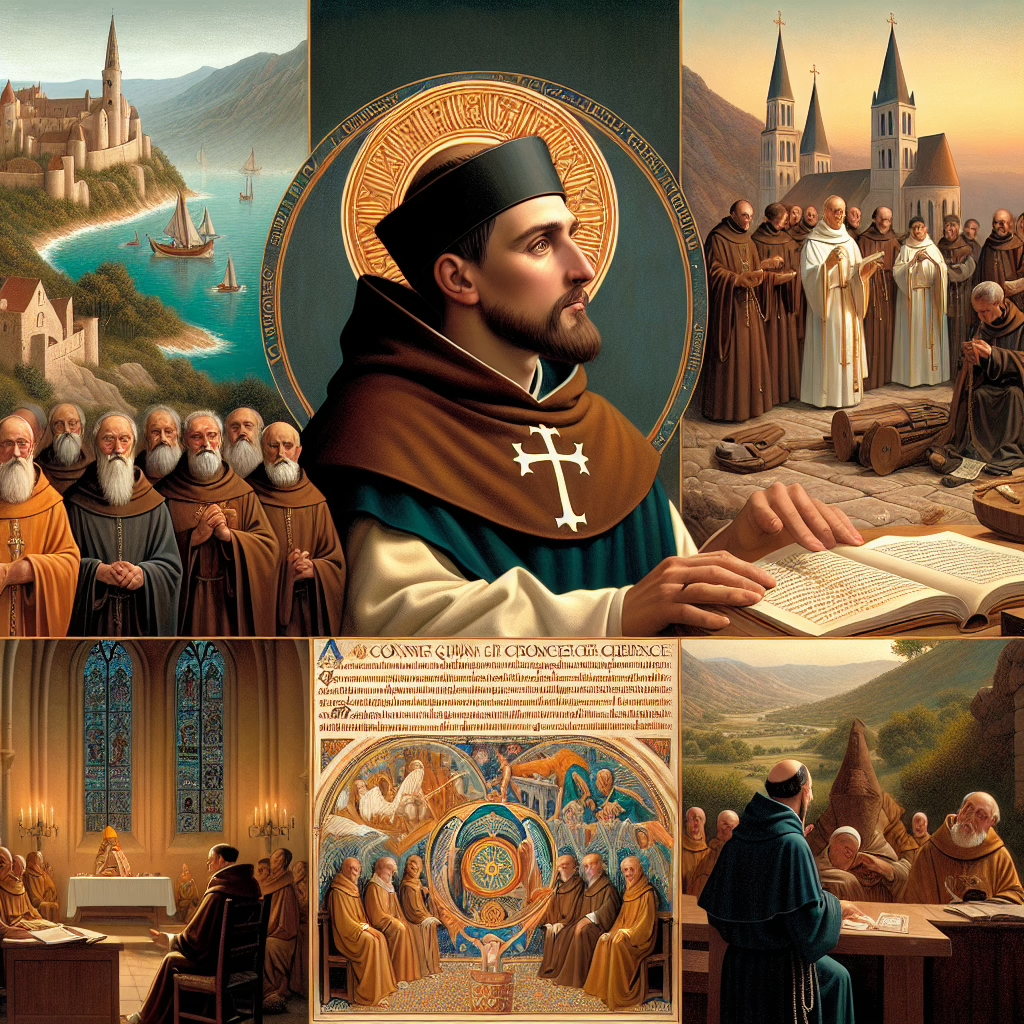St. Polycarp: Bishop and Martyr of Early Christianity
Introduction: A Beacon of Faith in Early Christianity
“For eighty-six years I have served Him, and He has done me no wrong. How can I blaspheme my King who saved me?” These powerful words, spoken by St. Polycarp at his martyrdom, encapsulate a life of unwavering devotion. Revered as one of the three chief Apostolic Fathers, alongside Clement of Rome and Ignatius of Antioch, St. Polycarp stands as a formidable figure in early Christianity. His life as a bishop, teacher, and ultimately a martyr represents the quintessence of faith in action. This exploration of St. Polycarp, Bishop and Martyr, will delve into his life, significant contributions, miraculous events, and enduring influence in Christian spiritual practice.
1. Life and Legacy of St. Polycarp
1.1 Early Life and Apostolic Connection
St. Polycarp was born around 69 AD in Smyrna, a city vibrant with cultural and religious diversity. From his youth, he was immersed in the Christian faith, a commitment that led to his discipleship under none other than John the Apostle. As a direct student of an apostle, Polycarp was instilled with profound insights into the teachings of Christ, embodying the living connection to the early church's core traditions.
His ordination as the bishop of Smyrna by John was a pivotal moment, not only for Polycarp but for the early church's structure and leadership. Polycarp's role as bishop was more than a position of authority; it was a mission to illuminate the truths of Christianity amid growing challenges.
1.2 St. Polycarp's Role in Developing Christian Orthodoxy
Confronted with rising heresies like Gnosticism and Marcionism, Polycarp staunchly defended the faith passed down from Christ's apostles. By publicly opposing these heresies, he fortified the church’s theological underpinnings, ensuring that the integrity of Christian theology and orthodoxy remained intact.
Polycarp's teachings transcended mere dogma; they were a lived reflection of the Gospel, a testament to his pastoral care and theological acumen. He invested deeply in nurturing a community rooted in truth, a legacy that resonates within the very fabric of Christian orthodoxy.
2. Miraculous Events and Martyrdom
2.1 Key Events in St. Polycarp's Life
As bishop, St. Polycarp's ministry in Smyrna was marked by profound faith and dedication. His teachings were not confined to theological halls but extended into pastoral care that touched countless lives.
Inevitably, Polycarp’s staunch advocacy for Christian orthodoxy brought him into conflict with authorities. His arrest and subsequent trial became a critical narrative event where his leadership and faith were put to the ultimate test.
2.2 The Miraculous Nature of His Death
Polycarp's martyrdom is an extraordinary account of faith manifest. Condemned to be burned alive, witnesses described how the flames did not consume him; it prompted the executioners to pierce him with a sword. The significance of Polycarp's martyrdom extends beyond his physical death to the spiritual victory he achieved.
The steadfastness with which Polycarp faced his fate has echoed through the centuries, inspiring countless believers to uphold their faith amidst persecution.
2.3 Miracles Attributed to St. Polycarp
The life of Polycarp was punctuated by miraculous events that underscored his spiritual eminence. One notable miracle involved the filling of jars with food during a visit to Bishop Daphnus, a testament to divine providence and abundance.
Moreover, an angel's warning prompted Polycarp to leave a collapsing inn, saving his life and illustrating the divine protection that clung to him throughout his journeys. These episodes of divine protection are not mere folklore but affirmations of the sacred reality interwoven with faith.
3. Lessons from St. Polycarp's Life
3.1 Faithfulness and Perseverance
Polycarp's life encapsulates profound lessons in faithfulness and endurance. His unwavering fidelity to Christ, even in facing death, challenges Christians to embrace a robust faith that withstands trials.
3.2 The Role of Tradition and Orthodoxy
St. Polycarp's dedication to orthodox teachings serves as a cornerstone for modern Christians. His life is a clarion call to defend the truths of Christian tradition and orthodoxy against the tide of heretic influence.
3.3 Encouragement for Prayer and Piety
Through his life, St. Polycarp exemplified a deep commitment to prayer and community service. His example beckons believers to deepen their devotional practices, drawing inspiration from traditional prayers shaped by his spiritual wisdom.
4. Prayers and Devotional Practices
4.1 Daily Prayers and Reflections
Incorporate elements of Polycarp's spirit into daily prayer routines, focusing on prayers for protection, faithfulness, and endurance. The importance of a rich prayer life and devotion can hardly be overstated.
4.2 Observance of the Feast Day
Celebrate St. Polycarp’s feast day on February 23rd, honoring his legacy through prayers and acts of community service. Engaging in such observances connects the faithful to an enduring tradition and a legacy rooted in sacrifice and devotion.
4.3 Seeking Intercession
St. Polycarp's intercession is particularly sought in times of trial and uncertainty. Engaging with the broader practices of saint intercessions deepens the connection between the temporal and the divine, offering solace and strength in faith.
Conclusion: The Enduring Impact of St. Polycarp
St. Polycarp, Bishop and Martyr, remains a beacon of faith through his life, teachings, and miracles. His enduring legacy continues to inspire Catholics to embrace a life enriched by tradition, orthodoxy, and unwavering devotion. As we delve deeper into his teachings, we are invited to incorporate them into our spiritual journey, fortifying our faith against the challenges of contemporary life.
To further explore the richness of early Christian martyrs and their influence, consider seeking out additional readings. Books like "Writings of the Apostolic Fathers: Mathetes, Polycarp, Barnabas, and Papias" offer engaging narratives and profound insights. You can find this book on Amazon.
Explore these resources and more as you continue to fortify your faith and embody the virtues exemplified by St. Polycarp in your own journey of devotion.





